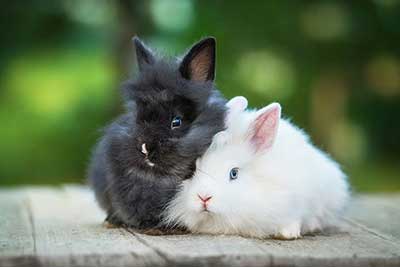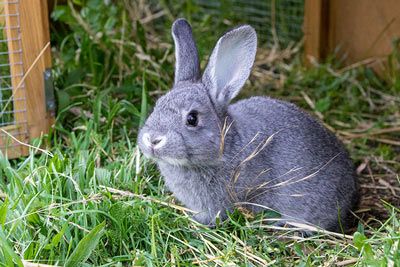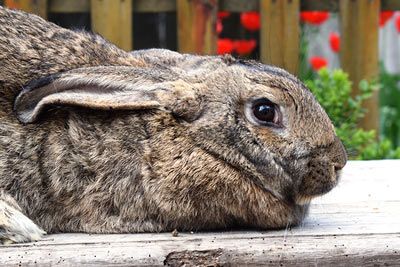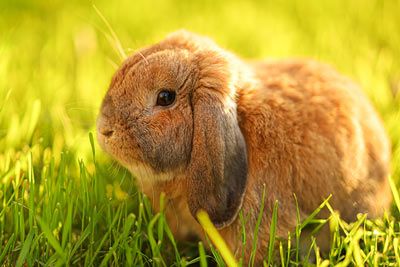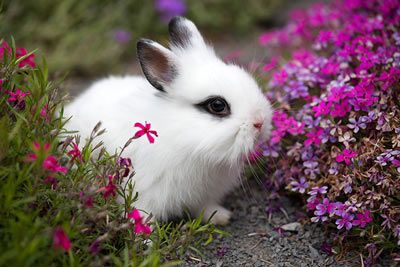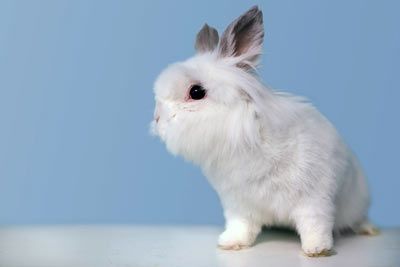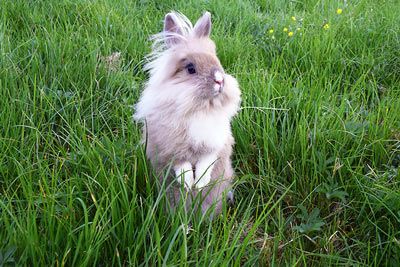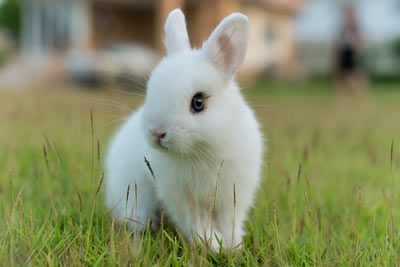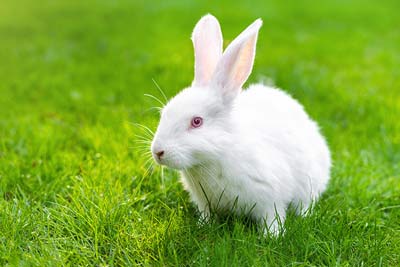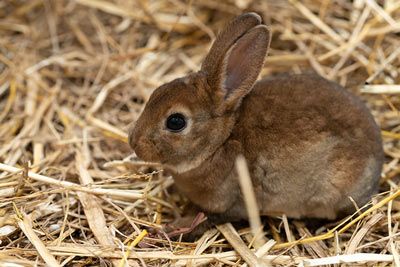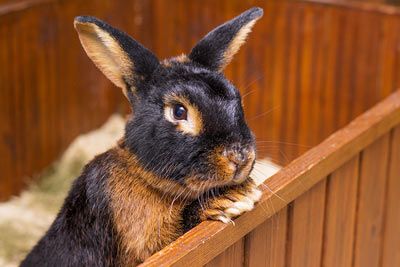Netherland Dwarf
Netherland Dwarf Rabbit Breed Profile
| Size | Small |
| Weight | 6-7 lbs (2.5-3 kg) |
| Fur | Short |
| Maintenance | Low |
| Personality | Friendly, sociable, happy |
| Lifespan | 5-9 years |
| Suitable for | Beginners and experienced owners |
| Origin | England |
| Indoor | Yes |
| Outdoor | No |
| Special characteristics | Very small and cute |
| Similar breeds | Dwarf Rex, Lionhead, Jersey Wooly |
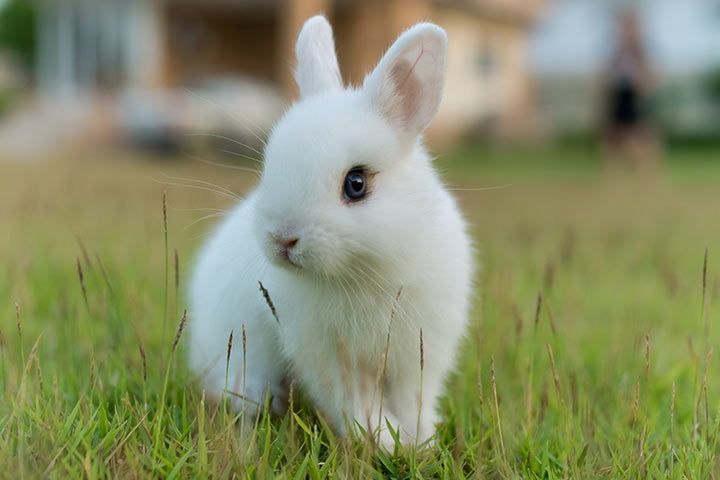
Characteristics
Netherland Dwarves are some of the smallest rabbits around - and some of the cutest! They have large, cheeky eyes, and their adorable ears always stand up. Their heads are slightly large compared to their bodies, which makes them look like little babies. Even at first glance, these dwarf rabbits will put a genuine smile on the face of any rabbit lover.
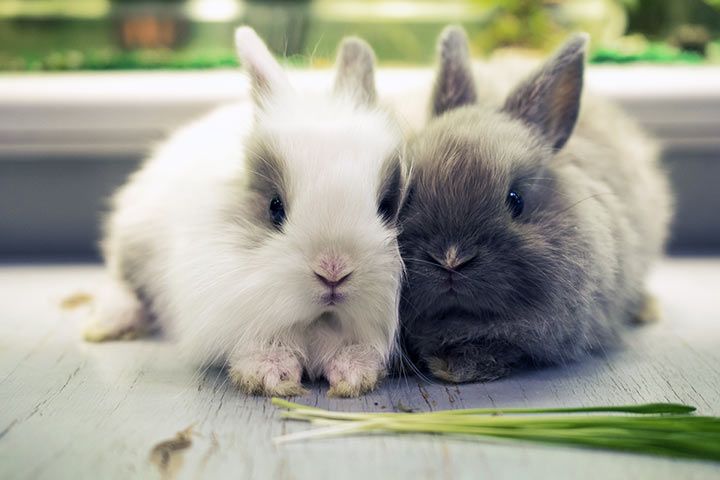
Personality
Netherland Dwarves are very active and have lots of energy. Despite their size, you can always see them flitting about. Netherland Dwarves need a much bigger run than other rabbits of their size thanks to their high level of activity. You should keep this in mind before buying one.
Their characters could be described as cautious, reserved, skittish and even fearful. If you give you them plenty of love, respect and patience, they will open up and become friendly, gentle and fun-loving animals.
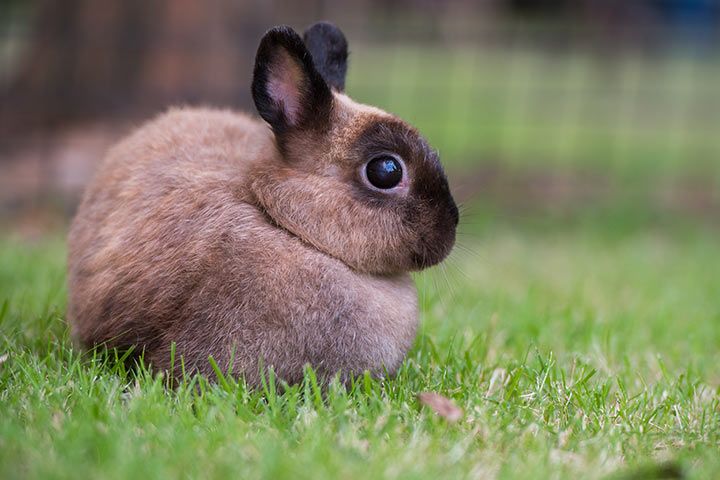
Health and Care
Netherland Dwarves have short, smooth fur, making grooming much easier than with long-haired breeds. They tend to have sensitive stomachs, so their food should be chosen carefully. It’s best to get yourself a good book.
Do They Like to Be Petted?
You could easily spend all day petting rabbits as cute as the Netherland Dwarf. But there’s something you need to keep in mind: Netherland Dwarves don’t like being touched. Rabbits are prey animals, so humans look like big, threatening predators to them. You should also know that Netherland Dwarves were made by breeding with wild rabbits. They are therefore much more shy than other breeds. And this should be respected.
It’s not surprising that Netherland Dwarves are often described as moody, stubborn and aggressive - this is especially the case if these rabbits feel cornered. Because they’re being pet. Netherland Dwarves are therefore more suitable for older children and young people that are happy to simply watch their rabbits.
Appearance
Fur
Netherland Dwarves have very short, dense, soft, shimmering fur.
Body
Their bodies are quite barrel-like, so they look very compact.
Head
They have short faces with wide foreheads and big eyes that sit slightly forwards.
Ears
Their ears are only around two inches (5-6 cm) long.
Color
Netherland Dwarves can come in a whole range of different colors and have all kinds of markings. They may be black, blue, chocolate, purple, red, beige, smokey, agouti or cinnamon. They can also be two-tone or multi-colored, and may have flecking or spots.
History and Origin
Netherland Dwarves come from the Netherlands, where they have been a recognized rabbit breed since 1939. They came about through a cross between Polish rabbits and wild rabbits.
Breeding
Netherland Dwarves are not allowed to be bred together in Germany, as 50% of their young will not be viable or may have a physical disability.

